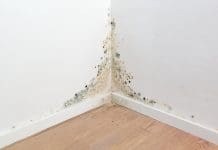The number of disrepair claims against social housing organisations across the country is becoming an increasing issue, taking up time and money that some teams just don’t have. But what’s behind this phenomenon, and how can you tackle it? Gary Cawley, director of CPC, explores
They were shocking images that many of us will remember for a long time to come – the utterly appalling conditions being endured by residents of a block of flats in Croydon. The damage was so bad it was described by both the chief executive of the UK’s biggest housing charity, Shelter, and the former chair of the UK Health and Safety Executive as the worst housing conditions they have ever seen.
The investigation from ITV in April led to an uproar from senior politicians and housing campaigners, and an influx of stories from hundreds of families around the country in similar situations.
Any housing professional – any human being – will have been disgusted by the squalor they saw. Rightly, the Housing Ombudsman is now running a call for evidence for an investigation into damp, dangerous and mould-infested homes.
It was an extreme case. But the causes of it are maybe not so unusual. The results of an independent investigation ordered by Croydon Council have revealed “a lack of capacity and competence” in the housing team, among a string of other findings such as systemic problems in communicating with tenants and dealing with their complaints. Such lack of resources in over-stretched housing teams is becoming a more frequent complaint and is highly likely to lead to a breakdown in service provision.
Of course, we should bear in mind the impact the pandemic has had on the ability of any registered provider to deliver the usual level of repairs service. Restrictions at different times of lockdown meant only emergency cases could be addressed, while both residents and staff may well have been self-isolating and furloughed at various points.
There may also be a backlog of cases coming down the line – how many residents will have left problems unreported, because they didn’t want people coming into their homes?
Legal claims on the rise
Given the cases uncovered by the ITV investigation, it is not surprising that legal claims for compensation are on the increase, especially those against social housing providers.
The claims companies that once chased whiplash incidents, pavement trip-ups or PPI mis-selling are now turning their attention to social housing. Our technical support manager Tony has direct experience of this from his previous role before he joined CPC.
While out visiting homes on his patch, he discovered that residents had been receiving flyers from a claims management firm, offering to initiate claims of disrepair and to start legal proceedings against housing providers on a no-win, no-fee basis. It’s an attractive proposition for residents if they are feeling frustrated, disengaged from their landlord or anxious about their housing conditions.
But on top of trying to deal with the backlog of housing repairs that were postponed during the lockdown, this is only adding to the pressure on councils and housing associations, costing them yet more time and money to respond to these claims.
Tackling the issue
How do we tackle this? Well, as Tony would be the first to point out, the worst thing to do is bury our heads in the sand. Whether disrepair claims are based on real concerns or are vexatious, it’s best to get ahead of the issue before it becomes a crisis.
Of course, clearing the backlog of claims won’t be easy, especially with the pressure of having to provide repairs proposals within 20 working days, but a triage process to assess claims and focus on the truly urgent cases will help in the first instance.
It is also important to get your communications teams involved early on. Proactively talking to residents and being open with them about the impact lockdown restrictions have had on your work, your likely maintenance and repair schedules and your response time going forward, is vital. Explaining the health and safety measures you have in place will also help to allay concerns, reassure them that you have their best interests at heart and that you will do your best to reach them as soon as you can. Encourage anyone who has not yet reported issues to get in touch. All of this may help to decrease the likelihood of them contacting the claims management companies before you’ve had a chance to get there first.
Moving forward
It’s unlikely that housing officers will have been into many homes for a while, but with the easing of restrictions, that has to start happening now. Returning to a consistency of home visits and stock surveys will help to restart the refurbishment routine.
Stock condition surveys are your friend, helping to give you the data you need for effective asset management. They may reveal costly repairs are required, but the implications on your budgets will be much worse if the claims management companies get to your residents before your surveyors do. The drain on resources will be heavier if repairs are not dealt with before they become a claim, and especially if they become a legal issue.
Then, consider using a framework to help speed up the procurement process and start remedial works earlier.
Our Whole House Refurbishment and Associated Works (WH2) framework covers everything and anything you may need, for projects from £250,000 to £5m. It features individual whole house refurbishment specialisms including kitchens and bathrooms with associated repairs, landscaping, electrical works and painting and decorating, while our second workstream offers multidisciplinary services including heating and electrical, central heating and boilers, roofing, wiring, and renewal of windows and doors.
The framework gives you instant access to a panel of pre-approved trades and suppliers, many of them local SMEs with a good understanding of your local housing stock.
The CPC team also remains at hand to give technical advice and to ensure you can keep the claims companies at bay.














